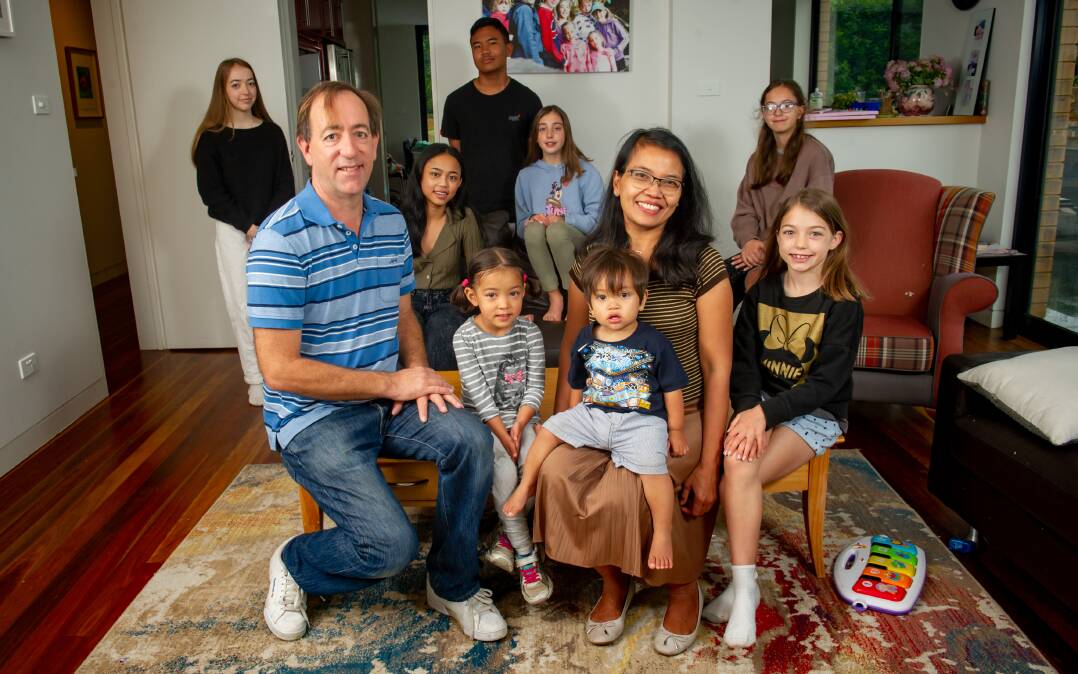Paul Buckley and his partner Kristina Ekawati, from Red Hill, have a unique insight into the issues impacting families in Canberra.
With 10 kids in total, eight living at home, Mr Buckley has a range of problems he would like the Albanese government to address in the October federal budget.
"We are a pretty lucky family to be honest. People are hurting a lot more than us but when we start to hurt, we know that there's issues," Mr Buckley said.
The children range from being fully grown and independent, to attending early childcare.

Affordable housing
First-home affordability is one of the issues the father would like to see addressed in the federal budget.
"My older children can't afford a home, that's a big one," Mr Buckley said.
"The bank of mum and dad has been squeezed, so there'll be less money available to help out my kids like my parents helped me.
"[If the interest rates on] my mortgage go north that's going to mean we'd have to seriously think about selling. We simply wouldn't be able to afford the mortgage, we're already nervous."
Cheaper childcare
The family is also paying almost $1000 a fortnight to put two children in childcare. This is after a government subsidy.
"Who in hell can afford $1000 a fortnight? You may as well stay at home and look after the kids," Mr Buckley said.
"The childcare centre has to charge $1 or $2 above the rate they get from the government per hour for their staff, otherwise they don't have staff, and that passes on to the parents."
The government wants more families like the Buckleys being able to continue working and not be priced out of accessing child care.
Labor came into government promising cheaper child care with increased subsidies for more than 1.2 million families as one of its signature policies. Tuesday's budget papers confirm cheaper child care was also one of its most expensive measures worth more than $4.7 billion over four years.
But Labor has resisted pressure bringing forward the new subsidy rates that are set to come into effect from July 2023.
Electric vehicle rebate
Increased access to electric vehicles in Australia is also a priority for the family. Mr Buckley wants the federal government to put forward a plan for an EV rebate.
In April the couple put their name down for a Tesla and still don't have a delivery date for their new electric vehicle.
"That's something that the federal government needs to address seriously. We feel that there should be a greater range of cars to choose from," he said.
The Buckley family could save up to $2500 on some taxes for some Telsa models under the government's $345 million electric car discount that exempts eligible EVs from fringe benefits tax and the 5 per cent import tariff.
A national strategy aimed at improving supply and uptake of affordable EVs is still in the consultation phase.
We've made it a whole lot easier for you to have your say. Our new comment platform requires only one log-in to access articles and to join the discussion on The Canberra Times website. Find out how to register so you can enjoy civil, friendly and engaging discussions. See our moderation policy here.







